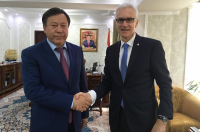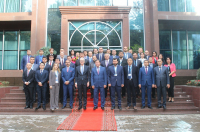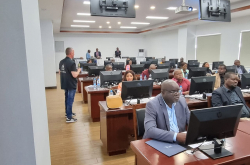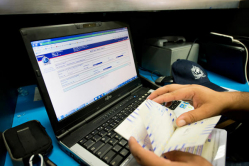DUSHANBE, Tajikistan – Addressing emerging trends and challenges in combating the terrorist threat throughout Central Asia is the focus of an INTERPOL meeting in Tajikistan.
Bringing together terrorism experts and analysts, Project Kalkan focuses on facilitating the exchange of information and coordination of operational activities.
Since it was established in 2004, Kalkan member countries have shared with one another, and with INTERPOL, more than 10,300 terrorist profiles and information on 60 terrorist organizations.

Tajikistan’s Minister of Internal Affairs, Rahimzoda Ramazon Hamro said: “We have seen significant results from Project Kalkan in strengthening our united efforts to counter terrorism.
“Tajikistan is committed to continuing its support for INTERPOL and this project which is an example of what can be achieved through regional and global cooperation.”

On his first official mission to Tajikistan, INTERPOL Secretary General Jürgen Stock underlined to participants the value of systematically recording and sharing biometric data.
“This is especially relevant for individuals suspected of terrorist activity, including those serving currently in prison and ahead of their release.
“Going forward, this information will help strengthen INTERPOL’s role as a global early warning system to help countries detect and interdict suspects as they attempt to cross borders,” added the INTERPOL Chief.
The two-day (31 October and 1 November) meeting is the latest in a series of specialized regional meetings coordinated by INTERPOL and will include exchanges on the terrorist use of drones as well as Anti-Money Laundering and Combating the Funding of Terrorism activities.
Project Kalkan, funded by the Government of Japan, currently involves 15 countries: Afghanistan, Azerbaijan, Bangladesh, Georgia, India, Iran, Kazakhstan, Kyrgyzstan, Maldives, Nepal, Pakistan, Sri Lanka, Tajikistan, Turkey and Uzbekistan.

Countries involved
Related news

Border security threats focus of STOP operations in Africa
8 December 2023







